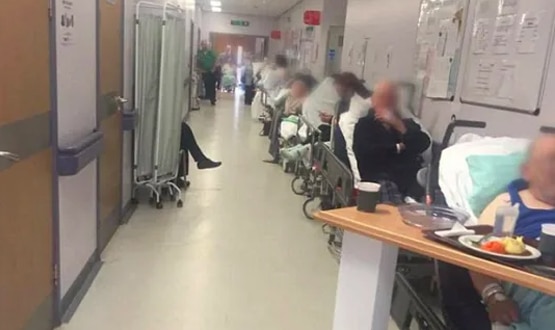Bed and capacity management systems targeted for £68m investment

NHS England is moving forward plans for a £68m programme of investment in Bed and Capacity Management Systems (eBCMS) as part of its efforts to try and use digital tools to alleviate waiting list waits and delays to patient transfers and discharge from hospitals, Digital Health has learned.
Some 16 trusts that are the worst performers on A&E waits and transfers are being targeted for investment, which aims to start to deliver improvements by this winter. Funding is thought to be over three years.
As first reported by Digital Health News in July, NHS England has been working to identify a set of very short-term priorities for investment that could potentially have an impact this winter.
The priority areas are thought to be informed by what has the potential to have an impact on spiralling waiting lists ahead of the next General Election, expected potentially as early as May 2024.
Of the so-called 6+1 priorities NHSE was pursuing in July, the one that seems to have emerged as the front-runner with significant national investment is bed management and capacity management.
The investment in eBCMS is modelled on what is seen as the blueprint provided by Maidstone and Tunbridge Wells NHS Trust, which has developed a sophisticated model, based on a command centre that oversees bed management, patient flow and Real Time Location (RTLS) tracking of patients to enable it to much more effectively track manage patient flow across admissions, discharge and transfers (ADT).
Secretary of State Stephen Barclay visited the trust in January and singled it out for praise for its innovative work on improving patient transfers.
NHSE has previously claimed in internal documents that Maidstone has been able to achieve a 45% reduction in patient transfer times and save 2258 hours of nursing time monthly. It hopes targeted investment under the eBCMS programme will enable other trusts to rapidly replicate this success.
Buy or Optimise
Digital Health News has learned that investment will be split into two categories: buy or optimise. Reviews of the trusts are being undertaken by Sonia Patel, system CIO at NHSE, to determine who falls into what category.
The trusts thought to be earmarked for investment in new systems, as their current systems are deemed unable to achieve the aims of the eBCMS programme, are:
East Kent University Hospitals NHS FT
Hull University teaching Hospitals NHS Trust
Liverpool University Hospitals NHS FT
The Princess Alexandra Hospital NHS Trust
The Shrewsbury and Telford Hospital NHS Trust
Worcestershire Acute Hospitals NHS Trust
The trusts thought to be earmarked for optimising existing systems are:
Barking Havering and Redbridge
East and North Hertfordshire NHS Trust
Frimley Health NHS FT
Manchester University NHS FT
Norfolk and Norwich University Hospitals NHS FT
Royal Cornwall Hospitals Plymouth NHS Trust
Interestingly, the list includes two trusts with some of the most high-profile EPIC EPR go-lives in the past couple of years: Manchester and Frimley, which are identified as needing further investment to optimise their new systems.
Three further trusts are identified as hybrid cases, where additional RTLS functionality is required on top of existing capabilities at the trust:
Portsmouth Hospitals University NHS Trust
University Hospitals of North midlands NHS Trust
Warrington and Halton Teaching Hospitals NHS FT
The lead for the programme is understood to be Sarah Jane Marsh, national director of Urgent and Emergency Care at NHSE, and former CEO at Birmingham Children’s Hospital NHS FT.
However, no details of eBCMS have been published on NHSE’s website, nor of any aspects of current front-line provider disgitisation or of digital maturity investments being made nationally by NHSE.




